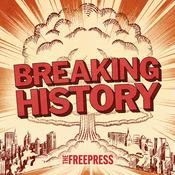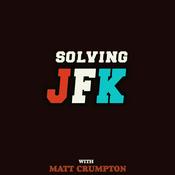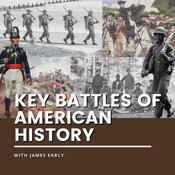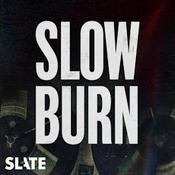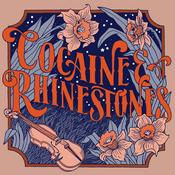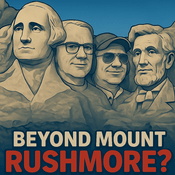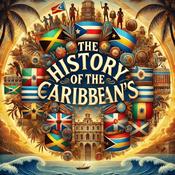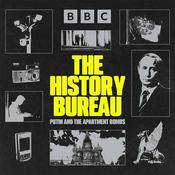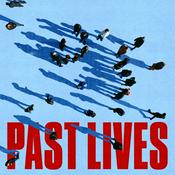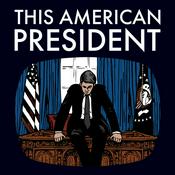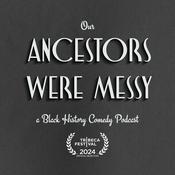Who We Are: A Chronicle of Racism in America
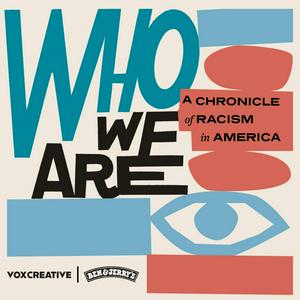
7 episodes

Revisiting Reparations
2/19/2021 | 33 mins.
In 1865, General William T. Sherman issued Special Field Order No. 15— a promise to redistribute 40 acres of once Confederate-owned land in coastal South Carolina and Florida to each formerly enslaved adult to begin mending the seemingly unmendable. It never came to pass. H.R. 40, also known as the Commission to Study and Develop Reparation Proposals for African Americans Act, has been brought to Congress repeatedly since 1989, first by the late Rep. John Conyers (D-Mich), now by Rep. Sheila Jackson Lee (D-Tex). Hear Jeffery Robinson, founder of the Who We Are Project and deputy director of the ACLU take on the past, present and future of reparations with veteran political activist Dr. Ron Daniels and legal expert and reparations advocate Nkechi Taifa. ADDITIONAL RESOURCES Baldwin, James. The Fire Next Time. Vintage, 1992 Coates, Ta-Nehisi. “The Case for Reparations.” The Atlantic. June, 2014. Du Bois, W.E.B. Black Reconstruction in America 1860 - 1880. Free Press, 1999 Foner, Eric. Reconstruction: America’s Unfinished Revolution, 1863 - 1877. Harper Perennial Modern Classics, 2014. H.R.40 - Commission to Study and Develop Reparation Proposals for African-Americans Act Lockhart, P.R. The 2020 Democratic Primary Debate Over Reparations, Explained. Vox.com, June 19, 2019 Marable, Manning. Beyond Boundaries: The Manning Marable Reader. Routledge, 2011. National African American Reparations Commission (NAARC) 10-Point Reparations Plan Taifa, Nkechi. Black Power, Black Lawyer. House of Songhay II, 2020. Learn more about your ad choices. Visit podcastchoices.com/adchoices

Ep. 6: The Myth of Post-Racial America
10/20/2020 | 41 mins.
From slavery to sharecropping to mass incarceration, American institutions have reproduced cycles of social rupture and exploitation by design. Is it even possible to imagine true equity as long as the current carceral system stands? Carvell Wallace and Jeffery Robinson begin with Bill Clinton’s 1994 Crime Bill before turning to the ways in which incarceration ripples through questions of voting, health, wealth, and state violence. With final words from Afro-futurist author Sheree Renee Thomas, we’ll explore how we might dream a new America into being and the possibilities of Black liberation. Additional information and resources related to this episode are available on our show page. Learn more about your ad choices. Visit podcastchoices.com/adchoices

Ep. 5: How We Arrive
10/13/2020 | 28 mins.
What does it mean to be well in America? Who is seen as deserving of healthcare? Racism has plagued the American medical system since its inception and continues to produce disparities in health and life expectancy to this day. In this episode, Carvell Wallace and Jeffery Robinson trace the decades-long epidemic of sharply higher mortality rates among both Black people giving birth and their babies. In conversation with OB/GYN and maternal/infant health advocate Dr. Joia Crear-Perry, as well as SéSé Doula Services founder Nicole JeanBaptiste, we’ll examine the way the healthcare system was designed to fail Black people, with a focus on Black maternal and infant health. Additional information and resources related to this episode are available on our show page. Learn more about your ad choices. Visit podcastchoices.com/adchoices

Ep. 4: Broken Bootstraps
10/06/2020 | 36 mins.
“To pull oneself up by one’s bootstraps” was originally a metaphor for the impossible. It’s now one of the most American of American idioms — encapsulating a belief that one’s fortunes and failures hinge on individual responsibility alone. It simultaneously obscures the systemic economic theft of Black people and other people of color in the US by state and commercial interests, as well as the systemic economic enrichment of white populations by those same forces. In this episode, Carvell Wallace and Jeffery Robinson explore how Black wealth has been routinely destroyed, using the example of a 1919 massacre in Elaine, Arkansas, where Black sharecroppers organizing for better financial conditions were killed by a white mob. We’ll also hear from law professor and scholar of banking history Dr. Mehrsa Baradaran on how discriminatory housing policies, unequal access to credit, and predatory banking continue to hinder attempts at wealth-building, even among the Black middle class. Additional information and resources related to this episode are available on our show page. Learn more about your ad choices. Visit podcastchoices.com/adchoices

Ep. 3: A Home and a Country
9/29/2020 | 31 mins.
Black bodies have always been on the line in America, whether on the auction block or in a parking lot in Minneapolis. American law has enshrined the state’s ability to enact violence with almost total impunity. And, going back to as far as the Colonial Marines in 1808, reclaiming one’s body from this system has required fearless acts of rebellion. In this episode, Carvell and Jeffery trace the evolution of slave patrols into modern policing, exploring the consequences of that origin story with activist and lead of Black Visions Collective Miski Noor and Dr. Kellie Carter Jackson, an historian of Black resistance and rebellion in the US. Collectively, they make the case that protest is vital to American progress and racial justice—and that we must keep taking to the streets. Third stanza of “The Star Spangled Banner” arranged and sung by Sandra Lawson-Ndu. Additional information and resources related to this episode are available on our show page. Learn more about your ad choices. Visit podcastchoices.com/adchoices
More History podcasts
Trending History podcasts
About Who We Are: A Chronicle of Racism in America
Listen to Who We Are: A Chronicle of Racism in America, Dan Carlin's Hardcore History and many other podcasts from around the world with the radio.net app

Get the free radio.net app
- Stations and podcasts to bookmark
- Stream via Wi-Fi or Bluetooth
- Supports Carplay & Android Auto
- Many other app features
Get the free radio.net app
- Stations and podcasts to bookmark
- Stream via Wi-Fi or Bluetooth
- Supports Carplay & Android Auto
- Many other app features


Who We Are: A Chronicle of Racism in America
download the app,
start listening.










